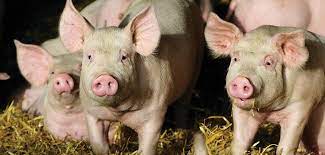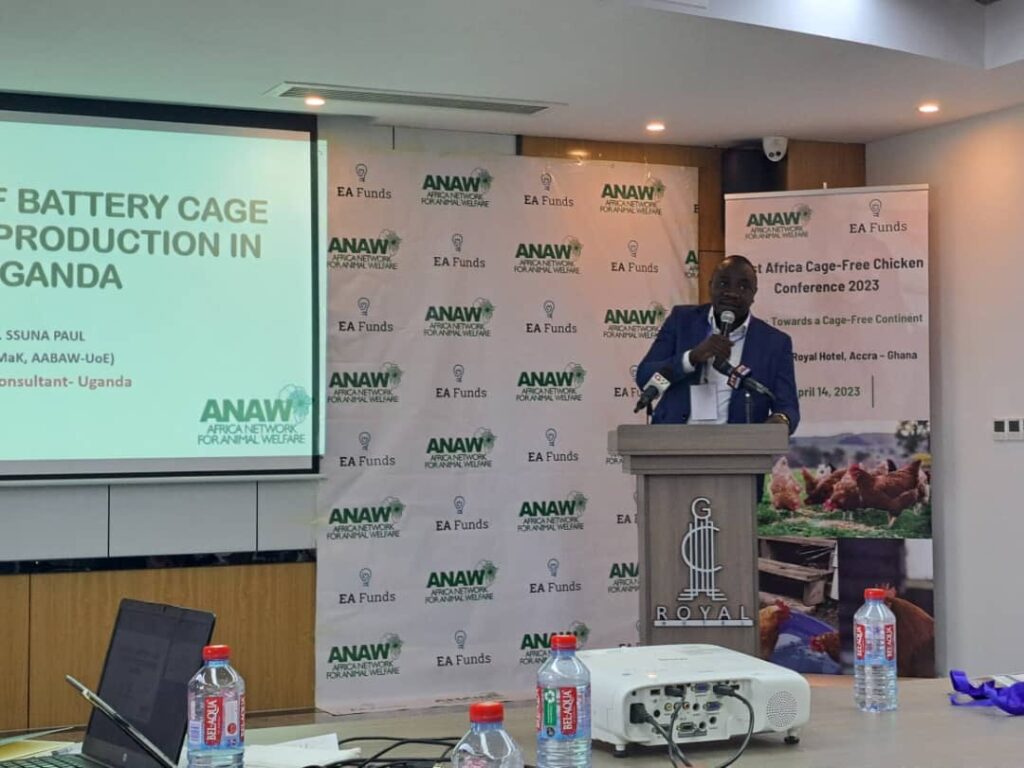The latest U-turn has seen the UK Government quietly drop plans to consult on banning cages for laying hens and farrowing crates for pigs leaving millions of farm animals confined to cages says the RSPCA which is one of the 15 broken promises.
This comes despite the public’s overwhelming opposition to cages. A brand-new survey commissioned by the RSPCA has found that 84% of the public oppose cages for laying hens, over half of people hadn’t heard of farrowing crates but when shown a picture of the conditions the pigs are kept in – 78% of people were opposed to them.
Currently, around 10 million hens live in cages in the UK which gives them on average less usable space than an A4 piece of paper. Around 60% of UK sows (about 200,000) are kept in cramped farrowing crates just before giving birth and for around four weeks after their piglets are born. These metal crates are so small that the sows can’t even turn around.
A full list of the 15 broken promises is provided in the link below.
https://drive.google.com/file/d/1L_swBF9htiLV2vrVemdFwklha_YPmDjH/view?usp=sharing

“A Comparison of the Welfare of Hens in Battery Cages and Alternative Systems” by Sara Shields is a comprehensive exploration of the welfare of hens in different housing systems. The article compares the traditional battery cage system with alternative systems such as enriched cages, free-range, and aviary systems.
Through a meticulous analysis of various welfare indicators including behavior, health, and physiological measures, Shields highlights the significant differences in welfare between hens in battery cages and those in alternative systems. The research demonstrates that hens in battery cages experience numerous welfare challenges, including limited movement, reduced behavioral opportunities, increased stress, and higher rates of injury and mortality. In contrast, alternative systems provide hens with more space, environmental enrichment, and opportunities for natural behaviors such as perching, dust bathing, and foraging. These systems have been shown to improve hen welfare by allowing hens to express their natural behaviors and reducing stress levels.
The article emphasizes the ethical implications of hen welfare and the need for a shift towards alternative housing systems to improve the quality of life for laying hens. It also discusses the potential benefits of alternative systems, such as improved egg quality, reduced disease transmission, and increased consumer perception and satisfaction.
Overall, “A Comparison of the Welfare of Hens in Battery Cages and Alternative Systems” provides valuable insights into the welfare differences between hens in battery cages and alternative systems. The research underscores the importance of transitioning towards more humane and sustainable housing systems for laying hens, promoting their overall welfare and addressing consumer concerns about animal welfare in egg production.
The West Africa Cage-Free Chicken Conference recently took place, bringing together stakeholders from the poultry industry to discuss the importance of transitioning away from caged poultry farming.
In the last 15 years, poultry farming in Africa has undergone a significant transformation, with a shift from small family farms to a large agricultural industry. However, the lack of legislation in many African countries has led to the widespread use of battery cages by small-scale farmers targeting urban consumers. This has also resulted in the importation and acquisition of battery cages from countries where their ethical use has been questioned and subsequently banned.
The West Africa Cage-Free Chicken Conference addressed the challenges facing the poultry industry in the region. The conference sought to achieve several objectives, including highlighting the extent and coverage of battery cage use in chicken production in three West African countries, understanding existing policies and regulations related to intensive chicken production through the use of battery cages and comprehending consumer perception and views on chicken production systems.
The conference also provided key recommendations and practical alternatives to battery cages and highlighted cage-free research and campaigns conducted in East Africa in collaboration with AWeCCA. By achieving these objectives, the conference hopes to boost chicken production, enhance chicken welfare, and promote sustainable practices in the poultry industry.

The article “Pig Gestation Crates: The Inhumane Confinement of Pregnant Pigs” is a powerful exposé of the cruel and inhumane treatment of pregnant pigs in factory farms. The article highlights the use of gestation crates, which are small metal cages that pregnant pigs are confined to for months on end. The cages are so small that the pigs are unable to move or even turn around, causing immense physical and psychological distress. The article also discusses the negative effects that these crates have on piglets, as the cramped conditions can lead to stillbirths and other health issues.
The article calls for more humane farming practices, such as the use of group housing systems that allow for greater freedom of movement and socialization amongst the pigs. It also emphasizes the importance of considering animal welfare in the context of public health, as the cramped and unsanitary conditions of factory farms can lead to the spread of diseases that affect both animals and humans. It is a powerful call to action for the agricultural industry to consider the ethical implications of their practices and work towards more sustainable and humane solutions. It is a must-read for anyone interested in animal welfare and the intersection of animal and human health.
info@awecca.org
+256-703-560277
Livingstone Drive, COVAB Veterinary Complex, Makerere University
P.O BOX 7062 Kampala, Uganda
Have an Inquiry?
Copyright © awecca 2023